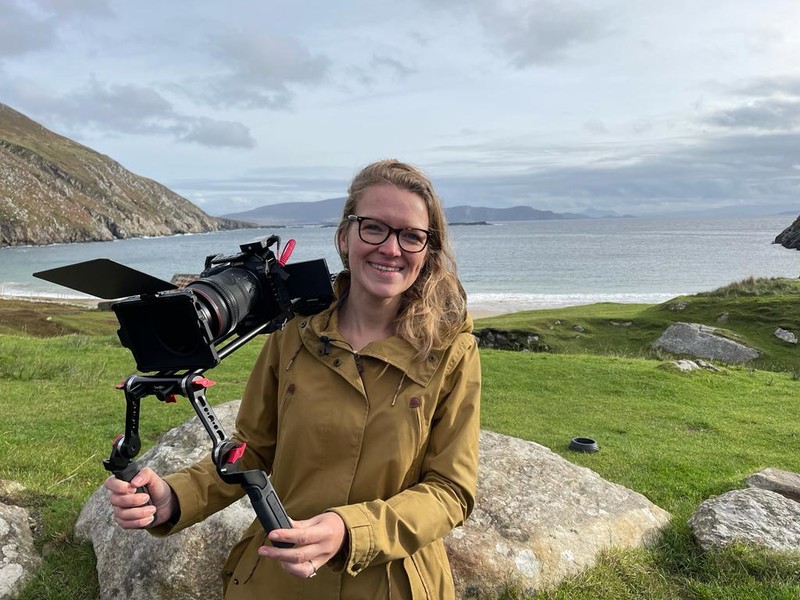
Green.Org had the chance to sit down with Dr Natasha Phillips, co-founder and director of documentary film-making organisation, Swimming Head Productions. Tasha spoke about the importance of making scientific research accessible to wider audiences, and the potential that film-making has to make that a reality.
Contents
- 1 Hi Tasha, thanks for chatting with me today. Could you tell me a bit about your background?
- 2 What is a fun fact about you?
- 3 Why do you think climate change and sustainability is such an important topic today?
- 4 What do you envision your industry looking like 10 years from now?
- 5 What can the average person do to make a difference?
- 6 Thanks so much for speaking with me today, Tasha. It’s great to hear about your passion and dedication to making scientific research accessible through your film-making.
Hi Tasha, thanks for chatting with me today. Could you tell me a bit about your background?
I’m a marine biologist and documentary filmmaker. Science outreach is my key passion and I’ve been very lucky to explore this field through my role as a National Geographic Explorer and featuring on platforms such as Radio 4, Discovery Channel, podcasts and conferences, speaking about marine conservation.
Big fish are my favourite subject: I spent four years doing a PhD on ocean sunfish ecology, I’ve taken on roles tagging sharks, skate and bluefin tuna. There’s just something fascinating about these strange, beautiful creatures that we’re lucky to just catch a glimpse of before they disappear off, back into the blue.
The documentary film I’ve enjoyed making the most so far was ‘Secrets of the Basking Shark’. It was a big project, drawing on all my research knowledge and contacts, filming all across the UK and Ireland. We heard incredible stories from the last shark hunter in Ireland who now calls for increased protections, explored new cutting-edge research from conservation teams, gathering new insights of swirling shark shoals from drones and cameras on the sharks themselves! I was blown away by the passion and dedication of the people we met, and I’m so delighted the film has now been selected for three international film festivals to share these new insights. There’s just so much more still to learn!
What is a fun fact about you?
I love a fish dissection but I’m really squeamish about blood and gore when it comes to people. Seeing how fish work is just so fascinating I’ll be right in there no problem, but I’ve yet to make it through a first aid course without hitting the deck!
Why do you think climate change and sustainability is such an important topic today?
The climate crisis is the biggest issue facing us all. It’s easy to bury our heads in the sand and pretend it’s someone else’s problem, but the effects are happening right now all over the world and it will only get worse unless we take real action. This is the time to get involved, there is no point delaying, we can all do something to help right now.
What do you envision your industry looking like 10 years from now?
I hope science and filmmaking becomes more open and accessible. I’d like to see science outreach as a key part of the process, rather than research held behind paywalls, with researchers and organisations being supported with more time and funding devoted to the sharing of knowledge and new findings. We need to amplify more diverse voices and ensure that everyone gets heard. It’s beginning to happen now, so in ten years, sharing data and findings publicly should be the norm for everyone!
What can the average person do to make a difference?
Sometimes the best thing is just to try and stay positive, even in face of all the negative news about the climate crisis and natural world more broadly. There will be times when it gets hard to keep doing your bit. But none of us are alone in this, keep your chin up as there is a huge community of people who care and it will make a difference.
Thanks so much for speaking with me today, Tasha. It’s great to hear about your passion and dedication to making scientific research accessible through your film-making.
Tasha recently appeared on the Mountain Conversations Podcast, to celebrate International Women’s Day and to talk about her exciting work with Ocean Sunfish. Click here to listen now!
Join us at the Green Summit in September 2022 with Steve Wozniak.